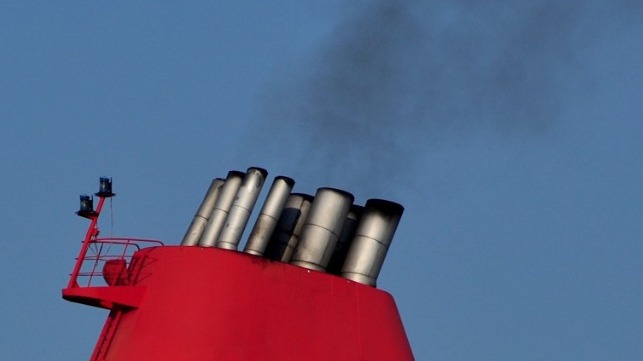Study: Shipping is Set to Miss the IMO 2050 Target

The maritime industry is not currently on track to meet the IMO ambition for a 50 percent cut in greenhouse gas emissions by 2050, even under favorable assumptions, according to a new study released by think tank Nordic West Office. The study suggests that this target could eventually be achieved on the industry's current trajectory, but it is likely to take several more decades than desired.
The 80-page study drew on input from well-placed participants, including Hapag-Lloyd, Carnival and the World Ocean Council. Using three global decarbonization scenarios developed by Shell as a starting point, the authors examined in precise detail how the industry - in all its moving parts - might be expected to transition to green fuels over time. The answer suggests that substantially more action and more cooperation will be required under all three scenarios, including the most optimistic option.
"The main conclusion of our project was rather sad and it was that even in the best possible scenario, we will not reach the ambitions of the IMO . . . to cut greenhouse gas emissions by half by 2050," said Dr. Risto Penttilä, head of Nordic West Office, at a panel discussion at the UN Ocean Conference. "There's hope we can still meet . . . both Paris [Agreement] and IMO 2018, but it needs a lot of work."
To change this trajectory and accelerate the process, the study's primary suggestion is to tackle decarbonization comprehensively and collaboratively - drawing in regulators, shippers, shipowners, investors, fuel suppliers, ports and other stakeholders to prevent "gaps" in the industry-wide effort. Providing all actors with a clear "zero by 2050" goal at IMO - along with predictable market-based mechanisms for carbon pricing - could help kick-start that effort.
The biggest bottleneck identified in the study is the need to build a supply chain for green fuels, which will require massive investment. However, the study identified dozens of further "enablers" that will need to be developed, depending on the specific vessel and application - like JIT arrival, improved routing, wind-assisted propulsion and much more.

that matters most
Get the latest maritime news delivered to your inbox daily.
The industry's progress will be influenced by the pace of global decarbonization overall, which will be driven in part by geopolitics. The most optimistic scenario in the study relies on an environment of international cooperation, openness and collaboration on climate solutions; the least optimistic of the three envisions a fragmented international landscape with reduced trade and cooperation, which "will not bring about a lot of clean developments by the end of the decade," the authors predicted.
"The current geopolitical trend that puts focus on food and security concerns does not favor decarbonization and will not bring shipping anywhere close to its ambitions. Getting closer to the ambitions requires even stronger decarbonization efforts than those currently envisaged," the authors cautioned.
